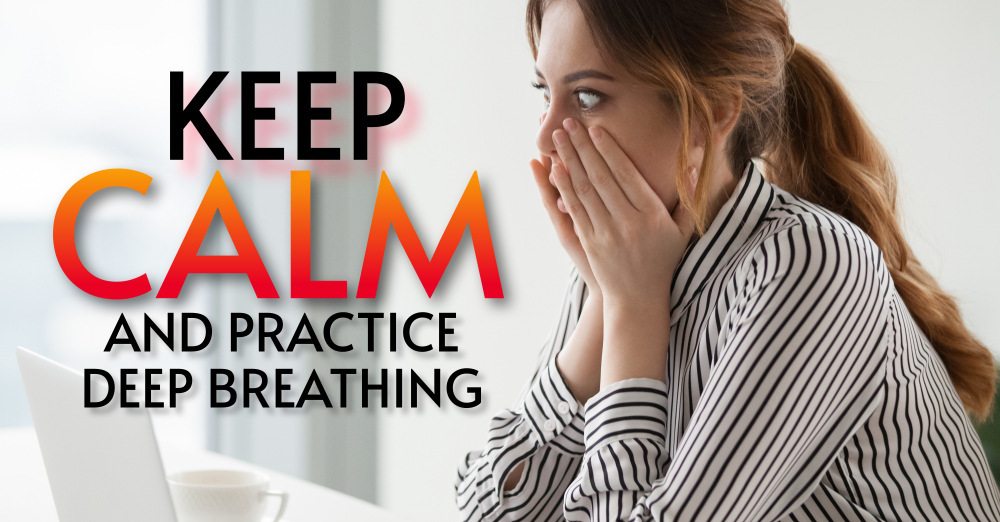
I have a friend who suffers from panic attacks. His name is Carlos, and he is very friendly and funny. However, when he has a panic attack, he becomes someone entirely different.
I was petrified the first time I witnessed a panic attack from Carlos. I didn’t know what was happening and worried something terrible might happen to him. He started shaking, and his heart was beating fast. I tried to calm him down, but to no avail. Finally, after about five minutes, Carlos could breathe more calmly. From that day on, I learned that the triggers for a panic attack vary and for no apparent reason why they occur.
Also known as an “anxiety attack,” it is a sudden and intense episode of extreme fear or discomfort. At that moment, a person experiences overwhelming physical and emotional symptoms lasting for several minutes. Common physical symptoms of a panic attack include: Palpitations or rapid heartbeat. Difficulty breathing or a feeling of suffocation. Chills and excessive sweating. Tremors or shaking. A feeling of tightness or pain in the chest. Dizziness or fainting. Nausea or upset stomach. And sensation or numbness in the extremities.
Furthermore, individuals may experience emotional and cognitive symptoms, including an overpowering dread of losing control or perishing, a feeling of disconnection or detachment from oneself, a fear of becoming mentally unstable, and an overwhelming desire to flee the circumstances.
Panic attacks can happen sporadically, triggered by various situations, including stress, previous traumatic experiences, disrupted sleep patterns, specific medications, or underlying health conditions. Panic attacks affect people of all ages, genders, and backgrounds.
However, some factors increase the likelihood of experiencing panic attacks, such as:
Family history. Evidence shows that a family history of anxiety disorders increases the risk of developing panic attacks. Life changes. Stressful events, such as divorce, unemployment, or significant life changes, increase vulnerability to panic attacks.
Personality. Specific personality characteristics, such as a tendency to be more anxious or to worry excessively, increase the risk of panic attacks. Substance abuse. Alcohol use or dependence on certain medications increases panic attacks.
––––––––––
Surviving a panic attack is undoubtedly a frightening experience, but there are several strategies to follow.
1️⃣ Recognize a panic attack. It is essential to understand that what you are experiencing is a panic attack, not an imminent threat to your life. Recognizing it as such helps you stay calm and remember that panic attacks are temporary and treatable.
2️⃣ Practice deep breathing. Controlled breathing is effective in reducing the intensity of panic attack symptoms. Try inhaling slowly through your nose for a count of four, hold your breath for a few seconds, and then exhale gently through your mouth. Repeat this breathing pattern until you feel calmer.
3️⃣ Use relaxation techniques. Along with deep breathing, other techniques, such as meditation, visualization, or progressive muscle relaxation, decrease anxiety during a panic attack.
4️⃣ Focus on the present. During a panic attack, it is common for the mind to be flooded with negative thoughts and worries. Focus on the present and your immediate surroundings. Notice the surrounding details, such as colors, shapes, or sounds, helps to distract your mind from the symptoms and calm the panic response.
5️⃣ Positive affirmations. Repeat positive, reassuring phrases to yourself. Use calming affirmations like “It’s just a panic attack; it will pass,” “I am safe and controlling my body,” or any other soothing affirmation. Everyone is different, so it is crucial to find the strategies that work best. Do not hesitate to seek professional help if panic attacks are frequent, or you feel you cannot handle them alone.
––––––––––
🟧❓FREQUENTLY ASKED QUESTIONS
––––––––––
✅ Does a panic attack kill? No, a panic attack does not kill. It is common for people who experience panic attacks to fear losing control or dying from anxiety. However, there is no evidence that a panic attack causes death. Anxiety and panic attacks have devastating effects on the mind and body, but are not deadly in and of themselves.
✅ What are the differences between a panic attack and a heart attack? In a panic attack, the affected area is usually the chest, while in a heart attack, the pain in the chest goes to other nearby areas. While a panic attack is solely caused by psychological factors, a heart attack can be attributed to a malfunction or structural issue in the heart. A heart attack involves the blockage of blood flow to the heart, while a panic attack is an episode of fear.
––––––––––
––––––––––
––––––––––
––––––––––
